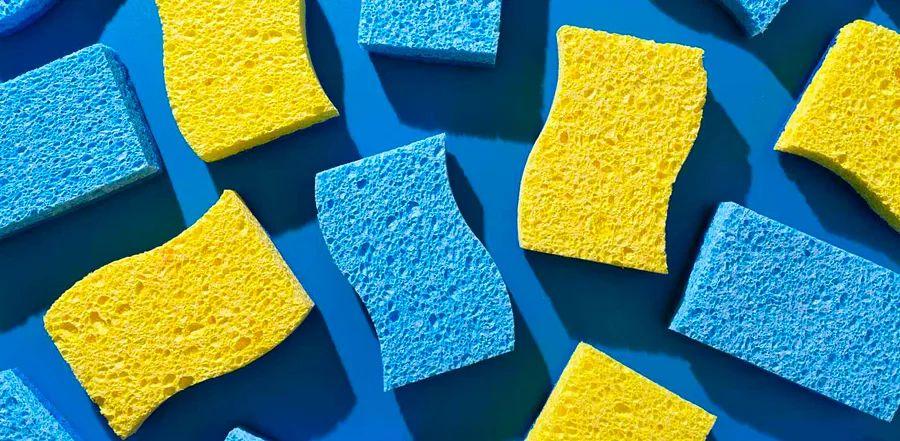This Kitchen Tool Might Be Filthier Than Your Toilet—Here’s How Often You Should Replace It

What if we told you your kitchen sponge could harbor more germs than your toilet seat? Studies reveal that kitchens are often dirtier than bathrooms, and the dish sponge is the biggest offender. It absorbs everything from food scraps to bodily fluids and even raw meat juices, usually without proper cleaning in between uses. This increases the risk of cross-contamination and foodborne illnesses.
There’s a lot of conflicting advice out there about how to clean a kitchen sponge, how frequently it should be washed, and when it’s time to replace it. We’ve done our best to sort through it all and break it down for you.
How Long Do Kitchen Sponges Actually Last?
A recent study looking into common sponge cleaning methods—like boiling or microwaving them in water—found that these techniques might not be as effective as we once thought. In fact, they could actually make some bacteria strands worse.
Researchers recommend replacing your kitchen sponge every week. Another study comparing the cleanliness of sponges to dish brushes found that dish brushes were cleaner and better for everyday use.
Some experts suggest that if you regularly clean your kitchen sponge, it may last up to a month or a little longer. However, if you want to minimize bacteria risk and keep your sponge as clean as possible, replacing it is the best option.
While this isn’t the most eco-friendly or cost-effective solution, you can mitigate the drawbacks by purchasing biodegradable sponges in bulk.
How to Properly Clean Your Kitchen Sponge
There are several methods to clean a kitchen sponge, but none of them have been proven to fully disinfect it.
How to Clean Your Sponge by Boiling It
Boiling your sponge for five minutes—whether in the microwave or on the stovetop—has been shown to reduce bacteria like salmonella. However, it won’t fully sanitize your sponge.
How to Clean Your Sponge Using Bleach
A study revealed that soaking sponges in a 0.02% bleach solution for 10 minutes effectively eliminates several bacterial strains.
After cleaning with either method, ensure your sponge is stored in a dry place, such as a sponge holder, to allow it to dry thoroughly.
How to Make Your Sponges Last Longer
Cleaning your sponges as frequently as experts suggest—at least once a week, or even after each use—can actually shorten their lifespan. So, you’ll have to choose between a fresh sponge and one that lasts. It’s one of life’s unfortunate truths: death, taxes, and the need for a new sponge.
How to Tell If Your Kitchen Sponge Has Gone Bad
If your sponge starts to smell, feels slimy, or shows clear signs of wear, it’s definitely time for a replacement. But ideally, you should swap it out before these red flags appear to avoid spreading bacteria around your kitchen. While you're at it, don’t forget to hang up a clean dish towel too.

1

2

3

4

5
Evaluation :
5/5